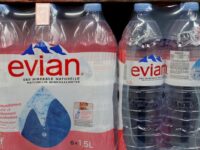When it comes to pest control, the theory prevention is better than cure has been around for a long time and suggests we need to be more proactive than reactive when it comes to the wellbeing of our businesses. Ineffective pest control costs business, causing poor online reviews, shutdowns, negative media coverage, cancelled contracts, unhappy customers and bad brand reputation.
With the current Covid-19 situation, various businesses are dealing with reduced resources, restricted access, lack of finances and manpower along with structural, and storage issues which can allow pest infestations to persist unnoticed. Buildings can provide perfect harbourage for pests to shelter and breed, especially when there is little or no disturbance from people during the lockdown.
Pests can damage many parts of buildings to gain access and get around buildings to find food and nesting places. Discovering pests in your business can be very distressing. Proactive preventive pest control stops pests from gaining access to a business, property or area by sealing potential entry points and proofing buildings.
Below are some practical ways you can prevent a pest infestation:
- Clean up after preparing food.
- Wipe down benches.
- Store food in sealed containers.
- Dispose of rubbish promptly.
- Check the building for gaps/holes which pests may gain access.
- Keep areas free from debris.
- Set up an integrated pest management plan suited to your needs.
Whilst prevention is always better than a cure, there will be times when one must resort to calling in the professionals.
In food processing environments, quality pest control is a necessity as pest infestations can place your product and business reputation at risk. Pest management in such environments are very sensitive and special precautions must be taken to keep pest control treatments from threatening food safety. To better control pests while respecting a food plant’s sensitive environmental needs, businesses can benefit from having an integrated pest management (IPM) approach to eliminate and prevent a range of pests from encroaching on their premises.
IPM is a combination of practices designed to eliminate the root cause of pest infestations and focuses on their long-term prevention. It’s significantly easier to prevent the risk and impact of costly pest infestations with an IPM plan or program with an ecosystem of solutions to stop pest activity on your premises, using environmentally friendly methods, wherever possible.
Taking proactive measures and engaging a pest control expert who will take the time to understand your specific needs makes good business sense. Rentokil works with customers to understand when and how pests pose a problem and sets action thresholds against factors such as the species of pest involved, individual business tolerance, building type and conditions conducive to pest activity.
Contact us today for more information on our integrated pest management systems.








